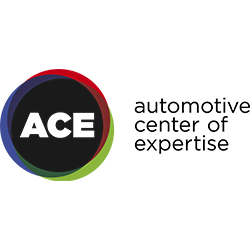De persoonlijke motivatie van deelnemers om daadwerkelijk iets aan hun situatie te willen veranderen, is belangrijk voor de mate waarin lokale armoede- en schuldenprojecten een verschil kunnen maken. Tegelijkertijd gebruiken deze projecten motivatie bij aanvang van het project nu nog te vaak ten onrechte als uitsluitingscriterium. In tegenstelling tot wat uitvoerders van projecten vaak denken, is iemands motivatie namelijk geen vaststaand gegeven. Persoonlijke motivatie is veranderbaar en daarmee een beïnvloedbaar onderdeel van gedrag. Wanneer projecten het werken aan motivatie meer expliciet en structureel integreren in hun aanpak, bereiken zij meer burgers met schulden die nu tussen wal en schip vallen.
DOCUMENT
Het onderzoek dat ten grondslag ligt aan dit artikel onderzoekt hoe de overheid markten reguleert voor (financiële) producten en diensten teneinde falen van de markt te voorkomen. Het behandelt specifiek EU Richtlijn 2014/57/EU betreffende strafrechtelijke sancties voor marktmisbruik en de implementatie daarvan in Nederland en opvolgend gebruik door het Openbaar Ministerie en Autoriteit Financiële Markten en hun Convenant ter voorkoming van ongeoorloofde samenloop van bestuurlijke en strafrechtelijke sancties. Het beantwoord de vraag of deze richtlijn de ontwikkeling van effectief reguleren van de financiële markt bevordert of remt. De slotsom ten aanzien van de implementatie van Richtlijn 2014/57/EU is – kort gezegd – dat “slechts” het aantal jaren gevangenisstraf voor handel met voorkennis en marktmisbruik van twee naar vier aangepast dient te worden. Het artikel concludeert tenslotte dat de huidige praktijk van het Convenant tussen OM en Autoriteit Financiële Markten kan blijven bestaan. De Autoriteit Financiële Markten kan haar inspanningen om haar toezicht verder in de geest van responsive regulation te verbeteren ongestoord door het OM voortzetten.
DOCUMENT

As the Dutch population is aging, the field of music-in-healthcare keeps expanding. Healthcare, institutionally and at home, is multiprofessional and demands interprofessional collaboration. Musicians are sought-after collaborators in social and healthcare fields, yet lesser-known agents of this multiprofessional group. Although live music supports social-emotional wellbeing and vitality, and nurtures compassionate care delivery, interprofessional collaboration between musicians, social work, and healthcare professionals remains marginal. This limits optimising and integrating music-making in the care. A significant part of this problem is a lack of collaborative transdisciplinary education for music, social, and healthcare students that deep-dives into the development of interprofessional skills. To meet the growing demand for musical collaborations by particularly elderly care organisations, and to innovate musical contributions to the quality of social and healthcare in Northern Netherlands, a transdisciplinary education for music, physiotherapy, and social work studies is needed. This project aims to equip multiprofessional student groups of Hanze with interprofessional skills through co-creative transdisciplinary learning aimed at innovating and improving musical collaborative approaches for working with vulnerable, often older people. The education builds upon experiential learning in Learning LABs, and collaborative project work in real-life care settings, supported by transdisciplinary community forming.The expected outcomes include a new concept of a transdisciplinary education for HBO-curricula, concrete building blocks for a transdisciplinary arts-in-health minor study, innovative student-led approaches for supporting the care and wellbeing of (older) vulnerable people, enhanced integration of musicians in interprofessional care teams, and new interprofessional structures for educational collaboration between music, social work and healthcare faculties.
Erasmus project about training cultural workers for facilitating rural youths culture
MUSE supports the CIVITAS Community to increase its impact on urban mobility policy making and advance it to a higher level of knowledge, exchange, and sustainability.As the current Coordination and Support Action for the CIVITAS Initiative, MUSE primarily engages in support activities to boost the impact of CIVITAS Community activities on sustainable urban mobility policy. Its main objectives are to:- Act as a destination for knowledge developed by the CIVITAS Community over the past twenty years.- Expand and strengthen relationships between cities and stakeholders at all levels.- Support the enrichment of the wider urban mobility community by providing learning opportunities.Through these goals, the CIVITAS Initiative strives to support the mobility and transport goals of the European Commission, and in turn those in the European Green Deal.Breda University of Applied Sciences is the task leader of Task 7.3: Exploitation of the Mobility Educational Network and Task 7.4: Mobility Powered by Youth Facilitation.
Centre of Expertise, onderdeel van Hogeschool Rotterdam, Hogeschool van Arnhem en Nijmegen, Fontys

Centre of Expertise, onderdeel van Fontys